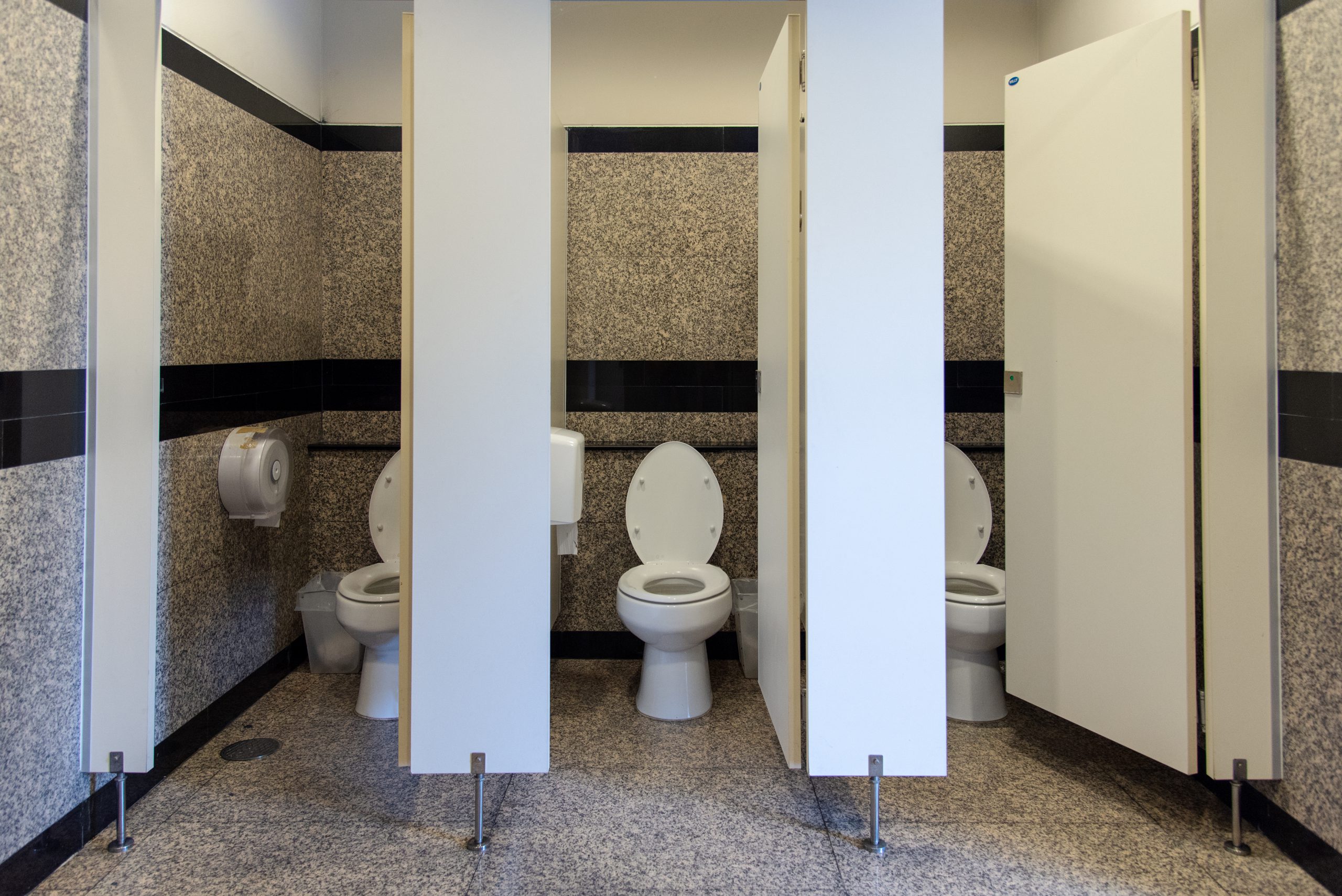Get Easy Health Digest™ in your inbox and don’t miss a thing when you subscribe today. Plus, get the free bonus report, Mother Nature’s Tips, Tricks and Remedies for Cholesterol, Blood Pressure & Blood Sugar as my way of saying welcome to the community!
4 ways COVID-19 increases the public restroom germ factor

Under the best of circumstances, a public restroom is a hotbed of disease. Even the cleanest restroom is full of hidden germs on surfaces and in the air.
Now, we have the coronavirus to consider.
Given all we know about how the present coronavirus is transmitted, a public restroom holds risks at every turn — dirty sinks, faucet handles and doorknobs, where the virus could survive for as long as a week, depending on what material it lands on (metal, wood, paper, etc.).
And let’s not forget that a public restroom is an enclosed space, usually unventilated. There’s no way to escape a cloud of aerosol particles left behind by someone who’s infected with the virus, no way to even know you’re breathing it.
Dr. William Petri studies immunology and molecular pathogenesis of enteric infections and their consequences. In other words, he’s an expert on intestinal diseases, how they start, spread and can be controlled.
Dr. Petri outlines four things you should be aware of right now, any time you absolutely must use a public restroom.
Of course, the best thing of all is to avoid public restrooms right now. But here are four things to pay attention to if you absolutely must use one…
1. What goes into the toilet doesn’t always stay there
Flushing waste down the toilet doesn’t mean it’s gone.
Health experts say that fecal matter can be aerosolized when a toilet flushes, sending tiny particles into the air, unseen.
A study of hospital bathrooms found that the amount of those particles in the air spiked after a toilet was flushed. Even at 3 feet away, the results were the same.
Not only that, but the concentration in the air remained high up to 30 minutes later!
Researchers have found that the virus that causes COVID-19 illness can be shed in stool for up to a month after a person is ill.
2. Surfaces can harbor the virus
We know there’s danger of inhaling the aerosols generated when someone coughs or even when they talk.
But those same particles settle on surrounding surfaces, like countertops and sinks.
To stay safe, be extra careful about touching surfaces in public restrooms. That includes door handles.
Related: This is how long coronavirus lives in the air and on surfaces
Touch these surfaces as little as possible. And, whatever you do, don’t touch your eyes, nose or mouth. The virus enters your body through those mucus membranes.
When you’re done, wash your hands thoroughly with soap and hot water. And skip the blow dryer, which just blows potentially dangerous particles up into your nose and mouth.
A face mask offers some protection against this, but it’s not a 100 percent guarantee of safety.
Keep some hand sanitizer and disinfectant wipes with you when you’re out in case the bathroom you use is out of soap or lacks running water.
Peak Golden Oil™
The powerful immune-modulating properties of Peak Golden Oil™ support a healthy immune system and your body’s ability to self-heal.
3. You’re in an enclosed space
The air in an enclosed space, like a restroom, can still have infectious coronavirus particles in it for several hours after someone with COVID-19 was there. Be aware of this and limit the amount of time you spend there.
Related: To lower your coronavirus risk at home, open your windows
This advice goes for any enclosed spaces, not just restrooms. That’s why it’s always best to spend your time away from home in the outdoors if you can.
4. Wear a mask… and walk out if others aren’t
You can’t control the behavior of others, but you can make a smart choice to protect yourself.
One of the more problematic things about the new coronavirus is that someone can be infected and show no symptoms for several days or perhaps not at all.
Related: When a mask makes sense and when it doesn’t
Social distancing in a small public restroom isn’t always possible. Wearing a mask will offer some protection. It will also protect others if you are a “silent spreader” (someone carrying the virus with no symptoms).
If you enter a restroom and someone else is in there without a mask on, the best advice is to walk out. It isn’t worth the risk.
Sources:
What goes into the toilet doesn’t always stay there, and other coronavirus risks in public bathroom — The Conversation
Antimicrobial Resistance & Infection Control — Bio Med Central
Stop Touching Your Face! — The New York Times













